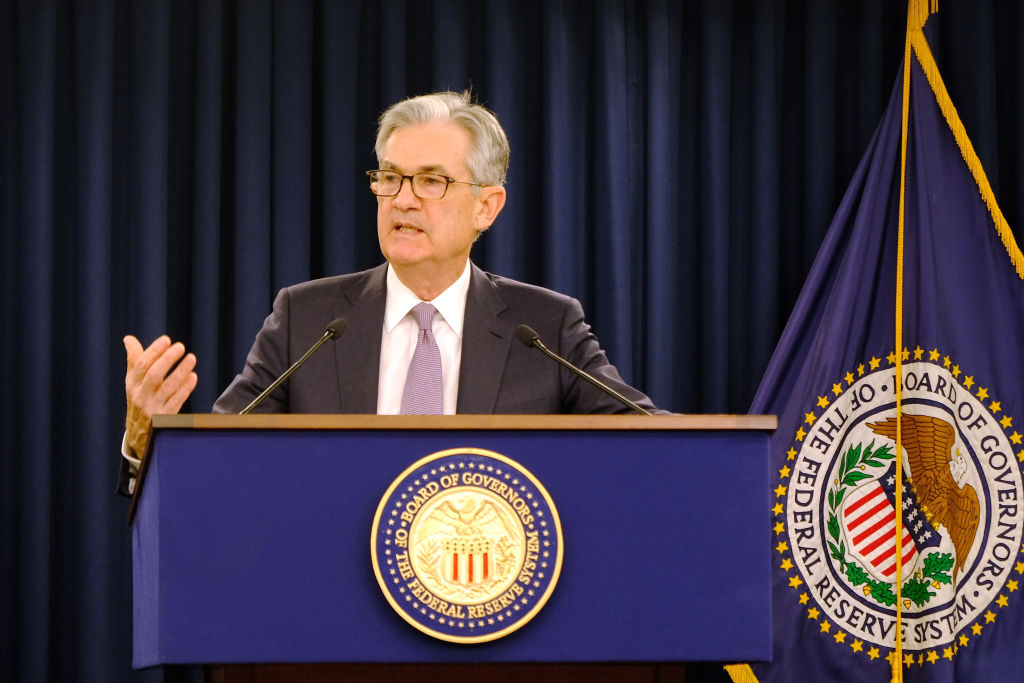Federal Reserve warns foreign centralised digital currencies could decrease global use of dollar
New report argues CBDCs could level the playing field for private sector innovation but that network security remains a significant challenge


The introduction of new centralised digital currencies in other countries could lead to a decrease in the use of the US dollar if they are deemed more attractive, the Federal Reserve has warned.
In a whitepaper released on Thursday, the Federal Reserve examined the pros and cons of a potential US central bank digital currency (CBDC), and is inviting comment from the public on its potential roll out.
The consultation is seen as the first step in a discussion of whether and how a CBDC could improve the country’s safe and effective domestic payments system.
One of the benefits outlined is that it could support the dominant international role of the US dollar. However, the Federal Reserve said that it's important to consider the implications of a potential future state in which many foreign countries and currency unions may have introduced CBDCs, warning that it they were more attractive than existing forms of the US dollar, global use of the dollar could decrease. However, it added that a US CBDC might help preserve the international role of the dollar.
This is important as the dollar is the world’s most widely used currency for payments and investments, and is the world’s reserve currency. This benefits the US by lowering transaction and borrowing costs for US households, businesses, and government. The currency’s international role allows it to influence standards for the global monetary system too.
The Federal Reserve added that a CBDC would offer the general public broad access to digital money that is free from credit and liquidity risk and provide a safe foundation for private-sector innovations to meet current and future needs for payment services. All options for private digital money, including stablecoins and other cryptocurrencies, require mechanisms to reduce credit and liquidity risk.
A CBDC may also help level the playing field in payment innovation for private-sector firms of all sizes, and generate new capabilities to meet the evolving speed and efficiency requirements of the digital economy. It could also streamline cross-border payments by using new technologies, introducing simplified distribution channels, and creating additional opportunities for cross-jurisdictional collaboration and interoperability.
Get the ITPro daily newsletter
Sign up today and you will receive a free copy of our Future Focus 2025 report - the leading guidance on AI, cybersecurity and other IT challenges as per 700+ senior executives
The Federal Reserve said that a CBDC could reduce common barriers to financial inclusion and lower transaction costs, which could be particularly helpful for lower-income households, although further study is needed.
However, it was also warned that a CBDC could fundamentally change the structure of the US financial system, altering the roles and responsibilities of the private sector and central bank. The ability to quickly convert other forms of money, including deposits at commercial banks, into CBDC could also make runs on financial firms more likely or more severe.
The report highlighted that any CBDC would need to strike an appropriate balance between safeguarding consumer privacy rights and affording the transparency necessary to deter criminal activity.
RELATED RESOURCE

Work from anywhere: Empowering the future of work
Employees want to work from anywhere, IT needs to be able to support this shift
Lastly, the report also warned that threats to existing payment services, including operational disruptions and cyber security risks, would apply to a CBDC as well. Its infrastructure would need to be extremely resilient to such threats and designing appropriate defenses for CBDC could be particularly difficult, as a CBDC network could have more entry points than existing payment services.
"We look forward to engaging with the public, elected representatives, and a broad range of stakeholders as we examine the positives and negatives of a central bank digital currency in the United States," Federal Reserve chair Jerome H. Powell said.
While the US begins its consultation into whether to create a CBDC, China is already implementing its own digital yuan. The country confirmed on Wednesday that it is ready to provide digital yuan payment services to Beijing Winter Olympics visitors, as reported by Reuters. This is the first time it will globally showcase its digital currency and a pilot version of its digital yuan wallet app has been available to download in the country since 4 January.
Zach Marzouk is a former ITPro, CloudPro, and ChannelPro staff writer, covering topics like security, privacy, worker rights, and startups, primarily in the Asia Pacific and the US regions. Zach joined ITPro in 2017 where he was introduced to the world of B2B technology as a junior staff writer, before he returned to Argentina in 2018, working in communications and as a copywriter. In 2021, he made his way back to ITPro as a staff writer during the pandemic, before joining the world of freelance in 2022.
-
 Bigger salaries, more burnout: Is the CISO role in crisis?
Bigger salaries, more burnout: Is the CISO role in crisis?In-depth CISOs are more stressed than ever before – but why is this and what can be done?
By Kate O'Flaherty Published
-
 Cheap cyber crime kits can be bought on the dark web for less than $25
Cheap cyber crime kits can be bought on the dark web for less than $25News Research from NordVPN shows phishing kits are now widely available on the dark web and via messaging apps like Telegram, and are often selling for less than $25.
By Emma Woollacott Published